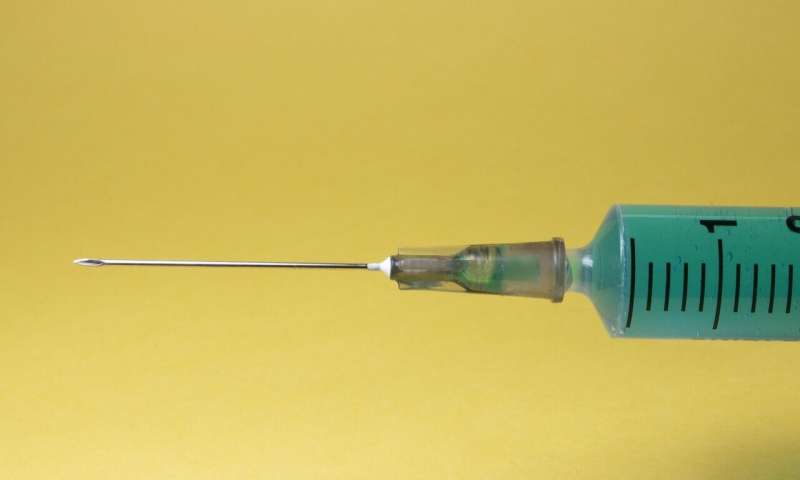RFK Jr. Seeks Major Changes to the Vaccine Injury Compensation System Amid Legal and Scientific Challenges

Secretary RFK Jr. proposes major reforms to the vaccine injury compensation program, facing legal and scientific hurdles that could impact public health and vaccine safety. Learn about the potential changes and challenges ahead.
For nearly four decades, individuals who believe they have been harmed by vaccines have relied on the Vaccine Injury Compensation Program, commonly known as the vaccine court. This system was established to provide a streamlined process for addressing vaccine-related injuries, balancing public health concerns with individual justice.
Recently, health officials, led by Secretary of Health and Human Services Robert F. Kennedy Jr., have voiced criticism of this established system. Kennedy has described the vaccine court as "biased," slow, and unfair, expressing a desire to "revolutionize" or "fix" it. His calls for reform are part of a broader effort to reshape vaccine injury policies, which have garnered both support and opposition.
The Vaccine Injury Compensation Program was created in 1986 to prevent legal challenges from disrupting vaccine supply. It was initially aimed at addressingside effects from the whole-cell pertussis vaccine, which was known to cause adverse reactions such as prolonged crying and convulsions. The concern was that lawsuits might lead manufacturers to stop producing vaccines, risking outbreaks of preventable diseases. The law established a no-fault compensation system, where claims are reviewed by special masters—judicial officials appointed by the Court of Federal Claims—and damages are paid from a trust fund financed through a small excise tax on vaccines.
While vaccines today undergo extensive testing and monitoring—proven to be overwhelmingly safe and cost-effective—some individuals do experience serious adverse reactions. The vaccine court offers a process to identify such cases and provide compensation, thus maintaining public trust and vaccine coverage.
Kennedy’s criticism targets perceived shortcomings in the program. He argues the system favors the solvency of the vaccine industry over compensating victims. His advocates have proposed reforms, including increasing the number of special masters, raising damages caps to account for inflation, and expanding coverage to include vaccines for pregnant women and potentially COVID-19 vaccines currently overseen by separate emergency programs.
However, changing the system faces significant hurdles. The existing legal framework—established by the 1986 law—would require Congress to amend it, a complex process involving legislative approval and presidential signing. Attempts to dismantle or overhaul the vaccine court, such as proposed bills, have historically failed or faced significant opposition.
Kennedy has also suggested adding conditions like autism to the list of presumed vaccine injuries, reinterpreting the scientific evidence that has consistently shown no link between vaccines and autism. Altering the list of recognized injuries involves a lengthy administrative process, including scientific reviews and public consultations. Given the scientific consensus on vaccine safety, such moves are controversial and could face legal challenges.
Another avenue Kennedy might pursue involves targeting vaccine manufacturers, potentially removing certain vaccines from the program’s coverage, or directing recommendations away from the vaccine court via the Advisory Committee on Immunization Practices. This could lead to more injury claims being tried in the civil courts, shifting the burden of proof and liability.
The push for reform is complex and fraught with scientific, legal, and political challenges. While Kennedy’s proposals aim to address perceived flaws, many health authorities and medical groups warn that radical changes could undermine vaccine confidence and public health efforts.
In summary, Kennedy’s initiatives to overhaul the vaccine injury compensation system represent a significant departure from current policies. While some suggest reforms might improve fairness, the path to meaningful change is obstructed by legal, scientific, and political complexities, making the future of the vaccine court uncertain.
Source: https://medicalxpress.com/news/2025-08-rfk-jr-overhaul-vaccine-court.html
Stay Updated with Mia's Feed
Get the latest health & wellness insights delivered straight to your inbox.
Related Articles
Parents Track Children's Development: Future Research May Reveal Brain Growth Insights
Researchers from the University of Maryland are developing tools to monitor children's brain development, paralleling traditional growth tracking, potentially revolutionizing early diagnosis and intervention for developmental issues.
Rising Alcohol-Related Liver Deaths in Women and Young Adults Revealed by Recent Study
New study reveals a rapid increase in alcohol-related liver disease deaths, especially among women, young adults, and Indigenous communities, highlighting ongoing public health challenges.
Innovative AI-Designed Vaccine Offers Hope Against Aggressive Skin Cancer
Discover how researchers are leveraging artificial intelligence to create a innovative multi-neoantigen vaccine that boosts immune responses against aggressive melanoma, paving the way for personalized cancer immunotherapy.
Oral Bacteria and Their Role in Parkinson's Disease via the Gut-Brain Axis
Korean researchers have discovered that oral bacteria colonized in the gut produce metabolites that may trigger Parkinson's disease through the gut-brain axis, highlighting new therapeutic possibilities.



